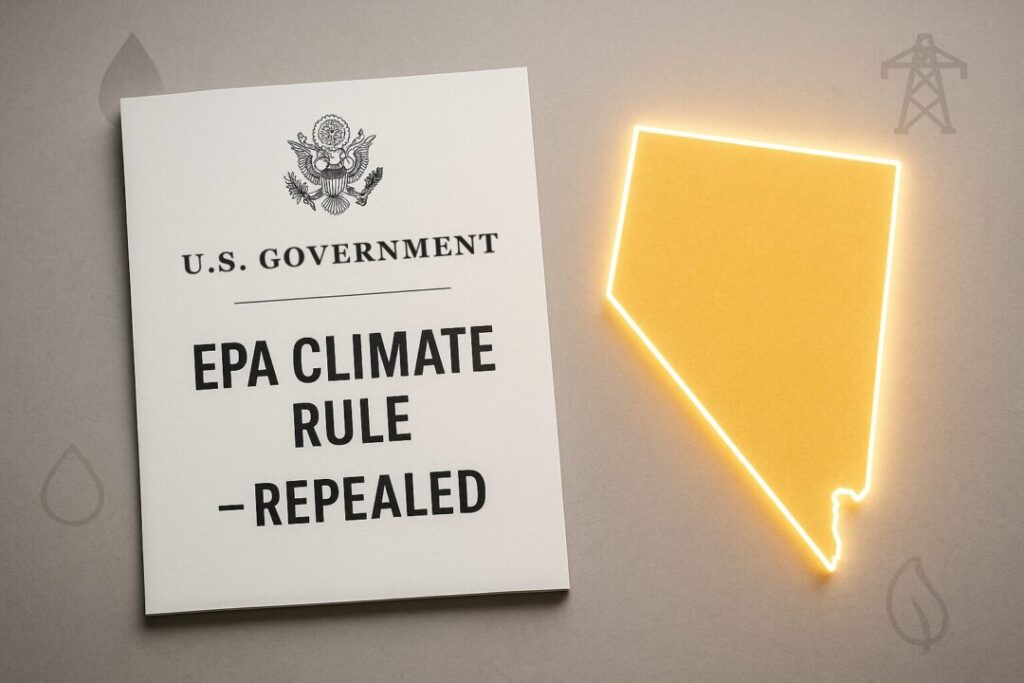The federal government just rolled back a major set of climate rules; instead of taking more control, they’re giving power back to the states.
On July 29, the Trump administration through the Environmental Protection Agency (EPA) announced it will repeal the “endangerment finding” from 2009.
That’s a rule that let the federal government treat carbon dioxide and other greenhouse gases as pollutants, which meant they could start regulating everything from cars and trucks to power plants and oil fields.
Trump’s team says it’s time to stop. EPA Administrator Lee Zeldin called the move the “largest deregulatory action in U.S. history.”
He says these rules cost too much, do too little, and hurt American energy and industry. The administration estimates this repeal will save over $50 billion each year by cutting red tape and letting states decide what’s best.
Environmental groups claim it’s dangerous, ignoring the science behind climate change. They’re already threatening lawsuits, pointing to a 2007 Supreme Court case that allowed the EPA to regulate carbon emissions in the first place.
But what does this all mean for us here in Nevada?
Less Regulation, More Local Control
For starters, this could mean less federal control over how we drive, how we power our homes, and how much we pay for energy.
The old rules pushed electric cars, stricter fuel standards, and forced power plants to cut emissions. Now, with those rules likely going away, Nevadans may see more options – and more affordable ones at that.
That’s good news for rural communities and working families who can’t afford a pricey electric vehicle or who rely on affordable gas to get around.
Energy Jobs and Costs
Nevada has made big moves in solar, battery storage, and other clean energy. Over 10,000 Nevadans work in those industries. Some worry that without federal rules pushing renewables, those jobs might slow down.
On the other hand, fewer regulations could lower costs for businesses and keep electricity prices stable. That’s a win for small business owners and folks living on a budget.
The EPA says American families could save thousands of dollars per vehicle over its lifetime if they’re not forced into electric cars that cost more upfront.
What About the Climate?
Nevada’s weather has changed.
Las Vegas summers are hotter. Wildfires have gotten worse. Lake Mead keeps dropping.
Opponents of the repeal say pulling back on federal rules will make it harder to deal with those problems. But here’s the thing: Nevada already has its own climate goals.
Our state plans to cut emissions and expand renewables – with or without Washington’s help.
The difference now is that our lawmakers in Carson City will have more freedom to tailor policies that actually work for Nevadans, instead of being told what to do by D.C. bureaucrats.
Tourism, Water, and Wildfires
Some experts say rolling back climate rules could hurt tourism. When it gets too hot or smoky, people stay home instead of coming to Vegas or hiking our parks.
And yes, water is still a big issue. The Colorado River isn’t what it used to be, and agriculture towns like Fallon depend on it.
But again, Nevada has a chance to lead – locally – without one-size-fits-all mandates from the feds.
President Trump promised to cut burdensome regulations, and this repeal delivers. It may not please the green energy lobby, but it puts decision-making back in the hands of states.
For Nevada, it’s a mixed bag.
We could save money and grow jobs, but we also need to be smart about our climate, water, fire, and tourism.
The key is finding that balance without letting Washington overstep.
Lawsuits will likely drag this fight out, but for now, the EPA’s move is a clear signal: States like Nevada get to decide how to handle climate, not unelected regulators in D.C.
This article was written with the assistance of AI. Please verify information and consult additional sources as needed.




